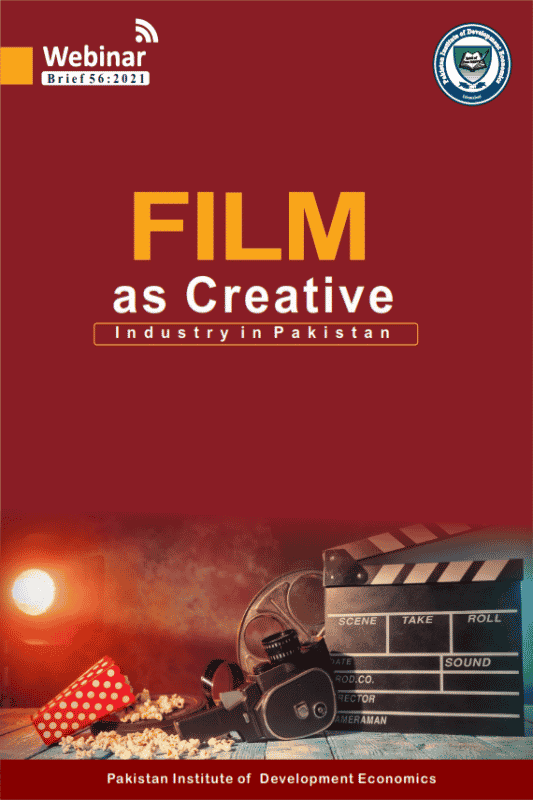
Pakistan Institute of Development Economics
- Home
Our Portals
MenuMenuMenuMenuMenuMenuMenu - ResearchMenuMenuMenuMenuMenuMenuMenu
- Discourse
- The PDR
- Our Researchers
- Academics
- Degree Verification
- Thesis Portal
- Our Portals
Film As Creative Industry In Pakistan
Film as Creative Industry in Pakistan
Preamble
PIDE organized a webinar on Film as a creative industry in Pakistan, which is a continuation of the earlier webinar on The Survival of the Cinema and Television Industry in Pakistan.
In this webinar experts from the film and television industry shed light on the constraints faced by the film and TV producers in producing and financing their creative content. The speakers also focused on the role of government support, film financing, how to make it a creative industry, and in what ways, can cinema and the television industry contribute to the development and growth of the country’s economy.
Key Messages
- The problem in Pakistan is that there is no concept of the film industry. Speaking of paradigm shift of any entity requires its existence in the first place. Due to a lack of government support, the concept of the industry is missing in Pakistan. Filmmaking is a business and also a form of artistic expression and to run a business a certain set of policies is required. These policies can be about taxation or setting up cinemas, or running institutes, or about censorship where government bodies are involved. The way our industry is structured nowadays is not very conducive to independent filmmaking. In the US and Canada, there are grants specified for filmmaking. In Pakistan, however, there are no such support systems. For the first-timer, the filmmaker has to be his/her marketer, distributor, director, producer, and exhibitor. If not as a financier, then the government must at least facilitate by not resorting to stringent taxation and excise duties on film equipment.
- State and government roles must go beyond merely announcing Pakistan’s first cultural policy or reverberating that filmmakers must produce original content. The need is to produce a sound and secure ecosystem with all the physical and social infrastructural requirements in place.
- What happened in the case of Zindagi tamashareflects the religio-political times we are living in and that filmmakers were and are the soft targets of stringent conditionalities of social institutions. In this social context, speaking of creativity, originality, and cinematic freedom is futile.
- What needs to be done is the implementation of a backward integration strategy wherein money earned through filmmaking can be put back into filmmaking.
- There can be multiple sources of generating resources, building cultural capital, and developing the cinema community for the progression of filmmaking in Pakistan; one such instance was KaraFilm Festival. Such festivals must be revitalized.
- The type and range of films being currently produced must cater to all the audiences, providing a wide range of options for the audience to choose from. Eventually, a good film is a good film without being boxed or proto-typed into a commercial, a niche, or an artsy one.
- The option of OTT platforms is again hindered by over-regulation of the State regulatory authorities such as PEMRA, obstructing another avenue of filmmaking progression in Pakistan, both on fi9nancial and creativity fronts.
- The facilitator role of the government must include relaxing or even removing tariffs on the importation of filmmaking equipment and entertainment tax. This one step will venture into developing a business model based on more economically viable yet high-quality filmmaking in Pakistan.
Also, what needs to be done is to understand the zoning laws/regulations for constructing single cinema houses or multiplex cinemas in Pakistan. A very important question to respond to is: Are the regulations fluid, fixed, stringent, or sticky?



